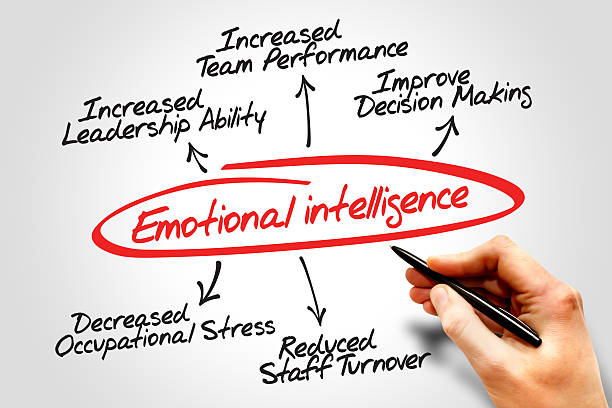Emotional Intelligence: The Secret of Exceptional Leadership

When envisioning an ideal leader, one often imagines someone who remains composed in the face of adversity, garners unwavering trust from their team, actively listens to their colleagues, and consistently makes well-informed decisions. These qualities all stem from a high degree of emotional intelligence (EI).
Emotional intelligence is indispensable for effective leadership. It is the ability to comprehend and manage your own emotions as well as those of the people around you. Individuals with high EI possess the capacity to identify their emotions, interpret their emotional signals, and recognize how their emotions can impact others. For leaders, cultivating emotional intelligence is essential for achieving success. After all, who is more likely to prosper – a leader who loses their temper under stress or one who maintains control and assesses situations calmly?
Self-awareness
Self-awareness is the foundation of emotional intelligence. It involves understanding one’s emotions, recognizing their implications, and comprehending how these emotions can influence others. In leadership, self-awareness also encompasses having a clear understanding of one’s strengths and weaknesses and acting with humility.
Slow down: Take a moment to pause and reflect when experiencing intense emotions. Remember that you have the power to choose your reactions.
Self-regulation
Leaders who excel in self-regulation seldom resort to verbal attacks, hasty decisions, stereotypes, or compromises of their values. Self-regulation is about maintaining control over one’s emotions and actions.
Define your values: Identify non-negotiable values and principles. This will make it easier to make ethical decisions.
Hold yourself accountable: Accept responsibility for mistakes, demonstrating integrity and earning respect.
Practice calmness: Employ relaxation techniques, such as deep breathing, to manage stress effectively.
Motivation
Highly motivated leaders consistently work towards their goals and maintain stringent standards for their work quality.
Reconnect with your passion: Remind yourself why you chose your career and seek out the root of any dissatisfaction.
Assess your motivation: Gauge your motivation for leadership using assessment tools and seek resources for improvement.
Cultivate optimism: Maintain a positive outlook even in challenging situations, actively seeking the silver lining.
Empathy
Empathy is crucial for leaders managing successful teams or organizations. Effective leaders empathize with others, help develop their team members, address unfair behavior, provide constructive feedback, and offer a listening ear.
Perspective-taking: Strive to view situations from others’ perspectives. Practice being a good listener.
Respond empathetically: Acknowledge others’ emotions and work towards solutions that consider their feelings and viewpoints.
Social Skills
Leaders proficient in social skills excel in communication, embrace both good and bad news, rally their team’s support, and lead by example.
Learn conflict resolution: Develop essential conflict resolution skills to manage team disputes effectively.
Enhance communication: Assess your communication skills and seek feedback for improvement.
Master the art of praise: Recognize and reward your team’s achievements, inspiring loyalty and motivation. Praise others in public and offer constructive criticism in private.
Effective leaders possess a profound awareness of how their emotions and actions influence those around them. The ability to relate to and collaborate with others is central to leadership success. Therefore, dedicating time to grow in one’s self-awareness, self-regulation, motivation, empathy, and social skills is crucial for any leader striving for excellence. In doing so, they will improve not only their emotional intelligence, but the culture of their entire workplace.










